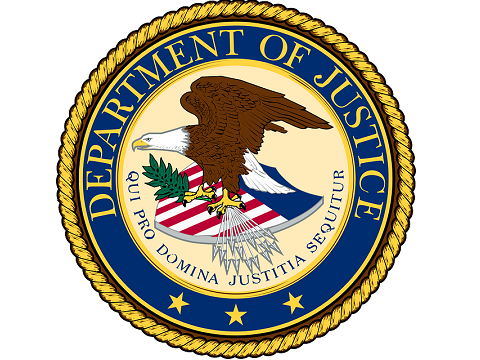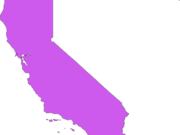PDF of comments available here
Submitted Electronically
Jennifer Kennedy Gellie
Chief, FARA Unit
Counterintelligence and Export Control Section
National Security Division
U.S. Department of Justice
175 N Street NE, Constitution Square, Building 3—Room 1.100
Washington, DC 20002
Dear Jennifer Kennedy Gellie,
We the undersigned organizations write in response to the Advance Notice of Proposed Rulemaking (ANPRM) issued by the Justice Department to solicit feedback for potential amendments to the regulations of the Foreign Agents Registration Act (FARA). We believe that FARA raises clear First Amendment concerns that should be central to the Justice Department’s considerations as it proceeds in the rulemaking process.
FARA was initially enacted in 1938 to address Nazi and Communist propaganda. On its face, FARA is strikingly sweeping. A “foreign principal” under the Act can be a foreign government or political party, a foreign corporation, a foreign non-profit, a foreign foundation, a foreign individual, or even an American domiciled abroad. An “agent of a foreign principal,” pursuant to the Act, can be someone merely acting at the “request” of that foreign principal. Finally, the Act covers a broad range of activities, including engaging in “political activities,” which is defined to include any activity to influence “any section of the public in the United States with reference to formulating, adopting, or changing the domestic or foreign policies of the United States,” or engaging as a “political consultant,” which includes “informing . . . any other person with reference to the domestic or foreign policies of the United States . . . . ”
A wide range of expressive and associative activity protected by the First Amendment could, in theory, fall under the Act’s vague and sweeping provisions. For example, a U.S. nonprofit that arranges a public speaking event in the United States on human rights in Sudan at the request of a pro-democracy Sudanese advocate might be engaging in “political activities” as defined by FARA. FARA might similarly be interpreted to cover a journalist in the United States writing a story about U.S. COVID policy, at the request of their Canadian newspaper, that is accessible online by the U.S. public. Or a U.S. group responding to a request for information from an overseas partner about U.S. climate change policy might be considered a “political consultant” under FARA. Many entities and individuals that prefer not to register will be chilled from engaging in any expression that might trigger the Act’s criminal penalties even if that expression is protected by the First Amendment.
FARA imposes significant burdens on those who need to register. The Act requires impacted organizations and individuals to register as foreign agents with the National Security Division of the Justice Department. Organizations and relevant employees must provide frequently updated, publicly available records of activities covered under the Act or face significant criminal penalties. For any materials covered by the Act—which include “any information materials . . . disseminated or circulated among two or more persons” by agents of foreign principals—they must place a conspicuous statement that the materials are being distributed on behalf of a foreign principal.
The breadth of FARA means its scope is difficult to navigate. For example, the Justice Department has issued over 50 advisory opinions on the Act’s “agency” definition alone. The Act’s exemptions are also vague and may privilege commercial conduct over similar types of non-commercial activities. For example, commercial actors are exempt from FARA for soliciting or disbursing funds for non-political activity in the United States, while the Justice Department provides no guidance exempting charities and other non-commercial actors for the same conduct.
Given the Act’s sweeping nature, the burdens of registration, and the significant stigma associated with registration, it is not surprising that FARA may enable selective enforcement for bad faith or malicious reasons, such as governmental hostility towards the content of the targeted activity. Indeed, history shows that FARA has been used in a politicized manner. In 2018, the House Natural Resources Committee investigated four prominent U.S. environmental nonprofits over whether they needed to register under the Act. In justifying the investigation, the Chairman of the Committee pointed to the broad agency definition in the Act that requires registration if one acts at the “request” of a foreign principal. Nor is the politicized abuse of the Act just a recent phenomenon. For instance, in the 1950s, the Justice Department prosecuted W.E.B. DuBois under the Act for allegedly circulating anti-nuclear information at the “request” of a France based anti-war group.
FARA’s overbreadth and vagueness can undermine and chill First Amendment rights to speech and association and the statute has a history of being used to target undesirable expressive conduct. Many of the First Amendment concerns raised by the Act can only be fully addressed through amending the underlying legislation. However, as the Justice Department develops new regulations for FARA, it should forefront these First Amendment concerns and adopt the least restrictive means when applying the Act to regulate First Amendment protected speech and conduct. For any questions please contact Nick Robinson at nrobinson@icnl.org.
Sincerely,
Alliance for Justice
American Civil Liberties Union
Americans for Prosperity
Charity & Security Network
Earthjustice
Institute for Free Speech
InterAction
International Center for Not-for-Profit Law
Knight First Amendment Institute at Columbia University
National Coalition Against Censorship
Natural Resources Defense Council
Oxfam America
PEN America
Solidarity Center














